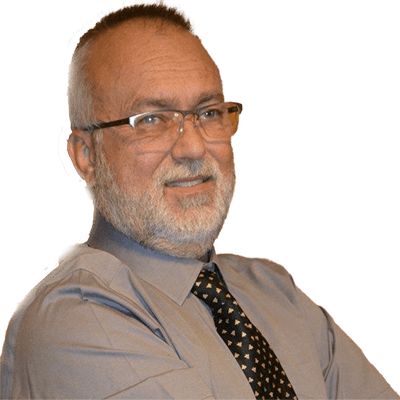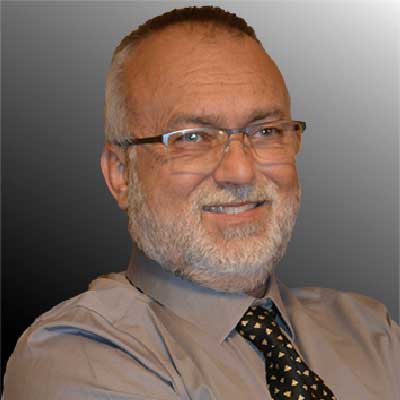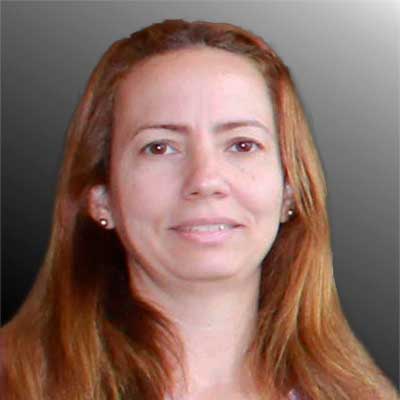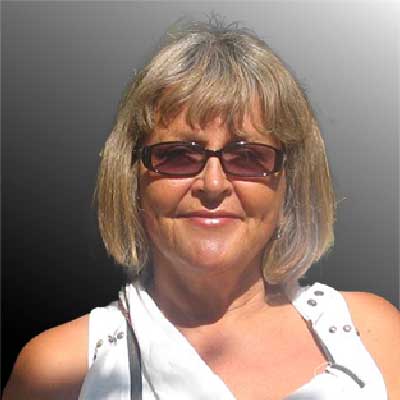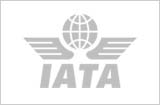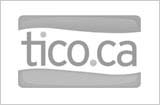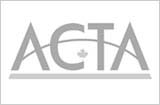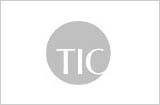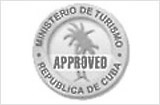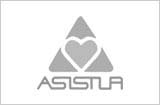Why you should go to Cuba?
Cuba is an archipelago of islands located in the northern Caribbean Sea at the confluence with the Gulf of
Mexico and the Atlantic Ocean.
Cuba is a paradise for beach lovers. There are few places in the world with as many beaches as Cuba and as beautiful
as the ones in this amazing Caribbean Island.
Cuba has some of the biggest and better conserved Spanish colonial architecture cores in America. No wonder Cuba’s Architecture
is one of the most significant attractions for foreign visitors to the largest island in the Caribbean.
Cuban culture is influenced by its melting pot of cultures, primarily those of Spain and Africa.
Sport is Cuba's national passion. Baseball is by far the most popular; other sports and pastimes include basketball,
volleyball, and athletics. Cuba is a dominant force in amateur boxing, consistently achieving high medal tallies in major
international competitions.
Cuban music is very rich and is the most commonly known expression of culture. The central form of this music is Son,
which has been the basis of many other musical styles like salsa, rumba and mambo and an upbeat derivation of the rumba,
the cha-cha-cha.
Cuban cuisine is a fusion of Spanish and Caribbean cuisines. Cuban recipes share spices and techniques with Spanish cooking,
with some Caribbean influence in spice and flavor. The traditional Cuban meal is not served in courses; all food items are
served at the same time.
Animal life is varied in Cuba, with over 15,000 species of fauna, of which 10% could be on the verge of extinction:
250 vertebrate species are endangered, rare or have become extinct in the last 350 years. The total number includes
42 mammals, 350 species of birds, 121 reptiles, 46 amphibians, 2947 molluscs, 7493 insects and 1300 arachnids.
More than 6000 species of plants are present in Cuba, of which around 3000 are endemic, and 950 plant species that are
endangered, rare, or have become extinct in the last 350 years.
Please, visit our Cuba Resources page for further details.
Fundraising ideas
Money is the greatest factor preventing Cuba educational travel. Yet this can be overcome by asking for help.
Fundraising is an excellent way to make your group Cuba tour affordable for more of your students. Because fundraising
teaches organization and cooperation, it also enhances group bonding and the educational aspect of the entire experience.
Nothing will bring your students closer than working towards a common goal. It also gives students a sense of pride for
financially contributing to their Cuba tour.
Easy fundraising ideas: Holiday gift-wrapping or flower sales are two fun and quick ideas.
Moderately easy fundraising ideas: If you want to make a few hundred dollars, a car wash, garage sale, sell art work or
crafts you produce or a spaghetti dinner are great fundraising options. Try to get local businesses to donate supplies
to keep costs down.
More challenging fundraising ideas: If you're trying to raise some significant cash, try a silent auction or gift calendar.
The following fundraising projects may take the most time and advanced preparation, but they yield great results for your students.
- Talk with a merchant about selling an organic or fair trade product like coffee to your friends or door to door in your neighbourhood.
- Part-time jobs: keep your eyes open and let your friends know you need Cuba travel funds. They may point you to one-time jobs that can pay $50-$100 dollars for a day's work.
- Baby-sit for parents in need of free time. Use your time when the kids are sleeping for reading, study and planning.
- Tutor a youth in skills you have that they need.
- Yard work, trimming and mowing lawns is a sure bet. Everyone needs this service. Also think about house cleaning – it's easy, fun and appreciated.
Brainstorm with your teachers and friends and suggest anything that you think may work. Your enthusiasm and motivation will move others to help you. So keep a positive attitude and keep trying. In all of these cases, personal contact and accountability are key to the success of your fundraising efforts.
Get creative, and let us know what works for you so that we can continue to expand our suggestion list to assist others.
Cuba entry documentation requirements
Valid passport, Cuban tourist card, airline tickets, Asistur SA travel medical insurance.
Luggage weight limits and restricted items
Cuba restricts total incoming luggage weight to 25 kilograms (55 pounds). If you bring more you could be subject to a 10.00 USD (1,200 CUP- Cuban Pesos) surcharge per extra kilo (2.2 pounds) up to a maximum of 5 kilograms. An additional allowance of 10 kilograms (22 pounds) is made for medicines and medical items.
PERMITTED ITEMS: You can take photographic and video cameras, personal DVD, PDA, CD and game device, cell
phones, including ones that are GPS enabled (all are costly to use), laptops, MP3 players, hair dryers, electric
shavers, binoculars, portable radio receivers, musical instruments, and sound recording devices FOR PERSONAL USE.
If you take more than one of the above items, Cuban Customs may ask if you intend to leave them on the island.
If you do, tariffs may apply. If you take more than the equivalent of $5,000 USD in cash, you'll need to declare it.
Prescription medicines should remain in their original containers with labels intact.
PROHIBITED ITEMS: Narcotics, explosives, pornography, anti-Cuba literature, stand-alone GPS devices, walkie-talkies,
and items that might be considered weapons.
Internet and Telephones
You can take your laptop to Cuba without complications, but connecting it to the internet is much more difficult than elsewhere (minimal bandwidth, limited service) and there’s no such a thing as free internet or WIFI.
The easiest way is to purchase a WIFI NAUTA card and connect to the internet at airports, hotels (usually best internet connections) and public Wi-Fi hotspots (public parks, plazas).
You can purchase a WIFI NAUTA Card at your hotel or at any of the offices of the Cuba’s Telecommunication Company SA (ETECSA). 1-hour cards sell for 25 Cuban pesos (CUP) while a 5-hour card costs 125 CUP. Please, do keep in mind that long lines are common place and sometimes cards are sold out at the ETECSA offices. So it is not unusual for locals to resell them at higher prices to foreign visitors.
The easiest way to call home is using your smart phone or mobile phone. Some North American companies such as Sprint and Verizon (USA) and Rogers and Bell (Canada) now offer international roaming services for their customers while in Cuba at premium rates. So please check with your carrier about any additional charges for voice calls, data, roaming, and text messages that you may incur during your trip.
You can also connect to the internet using your smart phone if you purchase a WIFI NAUTA Card. So you could access your emails and use applications such as WhatsApp for phone and video calls.
We strongly discourage the use of hotel room phones for local or long distance calls – it can prove costly!
If you call North America collect, the connection fee is about $10.00 plus $3.50 per minute.
Donations and Gifts
Cubans welcome and need donations.
Please consider focusing your donation efforts towards schools, teaching aids, student supplies, and toys for kids!
These could include memory sticks, calculators, pens, markers, games, pencils, erasers, flashlights and note
pads. Also appreciated are multiple vitamins (for children and adults), toothpaste, toothbrushes, soap,
shampoo and good quality used clothing and shoes. Baseball bats, balls, gloves, caps and T-shirts are very popular!
Do not distribute donations on the street. Your guide will suggest schools and institutions in need.
NOTE. Please do not tip your guide, bus driver, chambermaids or restaurant staff with leftovers or gifts in place of money.
IMPORTANT. When entering Cuba do not declare any items you intend to leave behind as donations as it could result in
lengthy delays and possible confiscation of materials. If your luggage is searched and you are questioned as to why you're
bringing 100 pencils (for example), say, "they are for friends" and leave it at that. Luggage inspections rarely happen
unless your bags exceed weight limits.
Laundry
There are no public laundry facilities in Cuba. If you need laundry services, ask your chambermaid or hotel
front desk. They'll give you costs and instructions for this service.
Electrical standards and time zone
Electricity in Cuba is 110 volts, 60Hz (same as Canada), however some hotels and resorts also have 220
volt service and outlets. An electrical adapter is rarely needed.
Eastern time is observed across Cuba, the same as Toronto, New York and Miami.
Arriving in Havana, your guide, bus driver and hotel
Your Authentic Cuba Travel® guide and bus driver will meet you at the airport. Once you collect your luggage and
pass through Cuban Customs into the main airport lobby, your guide will have a sign displaying the name of your tour.
Your guide will help you with currency exchange at the airport, ensure your luggage is put onto our bus, then take you
to your hotel and assist with check-in.
Money matters
The Cuban Peso (CUP) is the official currency in the island. All goods and services are priced and paid for in the CUP. The CUP floats in value against world currencies. Exchange rates vary daily. Today's rates are based on 1.00 USD equals 120.00 CUP.
Participants should carefully evaluate daily spending needs prior to departure. A minimum of $50 USD (CASH) per day is recommended. It is better to plan to take more money than to get caught short of funds.
Most private business such as casas particulares (guest houses/ bed & breakfasts), private bars and restaurants prefer cash payments in US DOLLARS or EUROS but Cuban pesos will be accepted too.
Change your money into CUP at a bank, your hotel, or at a CADECA (Casas de Cambio SA – exchange bureau). Never exchange your money on the street or through an individual Cuban.
Credit cards and travelers checks issued by Canadian and European banks are accepted (AMEX is never accepted).
But please confirm with your bank before you depart as regulations change constantly. Canadian travelers If you have a MasterCard issued by a credit union or caisse populaire it won't work in Cuba. Contact your branch for more information.
Credit cards and travelers checks issued by US banks are not accepted. Debit cards do not work in Cuba.
A photocopy of your passport is sufficient identification. However, your actual passport is necessary when conducting banking transactions in Cuba.
The Cuban Peso (CUP) can only be purchased in Cuba. Spend it or exchange it on the island before you return home.
You are advised to spend your CUP or exchange your CUP to a foreign currency in a CADECA or Bank in the city before reaching the airport on departure, as this service may not be provided at the CADECA money exchange counter there. Foreign currency in Euros, US or Canadian dollars can be used for cash payments in duty free shops or cafes in the departure area after passing immigration.
There is another currency in circulation in the island: the Moneda Libremente Convertible (MLC) or Freely Convertible Currency (MLC) is a digital currency (as no physical MLC bills or coins exist) used by Cuban residents at the so called “MLC stores” (tiendas MLC).
Foreign visitors can purchase prepaid MLC cards at a CADECA (Casas de Cambio SA – exchange bureau) using any foreign currency accepted in Cuba such as Canadian dollars, Euros, British pounds, Japanese yens and Mexican pesos. USD dollars are now accepted too. Keep in mind that 1 MLC equals 1 USD.
However, the use of the MLC card is pretty much limited to hotels, rental car companies, some restaurants and the MLC stores. Most government-run and private businesses and tourist attractions will accept payments in cash in CUP.
Tipping in Cuba
Tipping can be done in either foreign currency (such as EUROS or US DOLLARS) or in the local currency, CUBAN PESOS. However, it is also generally acceptable to tip in major foreign currencies such as Canadian Dollars (CAD) and Pound Sterling (GBP).
In the event that you develop a special connection with a staff member, it is appropriate to offer a thoughtful gift along with any personal items you no longer need, as a token of appreciation. Don't leave toothpaste, leftover toiletries and other used items, or foreign coins in place of tips.
We recommend the following amounts:
- Tour Guide: 8.00 USD/ EUROS per day per person
- Tour Bus Driver: 5.00 USD/ EUROS per day per person
- Porters: 1.00 USD/ EUROS per person or more if you have lots of bags
- Restaurant staff: 10% of cost of meal or 1.00 USD/ EUROS whichever is greater, per meal per person
- Chambermaids: 2.00 USD/ EUROS per day per room (can be split with your roommate)
- Taxi Drivers: 10% of total fare in USD/ EUROS
- Museum guides and special guides: 1.00 USD/ EUROS per person
- Bartenders: 1.00 USD/ EUROS per drink
Health and safety
Cuba is considered among the safest countries in the world with a very low crime rate. However precautions
with personal belongings are necessary – do not leave things unattended. Don't wear expensive jewelry –
it attracts pickpockets, which are a growing problem. Keep cameras and handbags secure to your person at
all times.
Participants should use a lockbox at hotels for valuables, travel documents, air tickets, passport and cash.
Always carry some cash in small amounts each day, we suggest between 40.00 and 60.00 EURO or USD Dollar and about $500.00 (Cuban Pesos). The rest of your
money remains in your hotel lockbox, along with your travel documents, valuables and passport.
While Cubans have no problems with the water, we recommend you drink bottled water at all times for peace of mind. You can buy a small water bottle for $15.00 CUP at hotels, small shops and local stores.
A doctor or nurse is available to participants throughout the tour either at your hotel, nearby clinic or en route
to destinations.
No vaccinations are necessary or required to enter or travel to Cuba.
Panhandlers and hustlers
We strongly advise against giving money to individuals who approach you on the streets. When an individual
approaches you on the street and asks for money, or with offers to provide guide or other services, just
say no with determination and move on.
You risk getting ripped-off. Don't be shy, don't feel bad, and don't let them waste your precious time in Cuba.
To do otherwise could cost you heartache and your wallet! Remember, nearly half of every dollar you spend on
this trip goes into the island's health care and education system – to Cubans who need and deserve it.
Leaving Cuba
The Cuban airport departure tax is usually included in the cost of your flight ticket.
Please, visit our Travel Formalities page for further details.
Want to Take Your Students to Cuba?
Authentic Cuba Travel® operates courses, programs and exchanges sponsored by Cuba’s top educational schools and organizations such as the University of Havana, Cuba's National Ballet School, Cuba's Sports Ministry, San Alejandro’s Arts School, Insituto Cubano de La Musica, Conjunto Folklórico Nacional de Cuba. Request custom-made no-obligation Cuba Study Tours® for your students and check all the resources we put at your service. Do not wait any longer. Now is the time to start planning the next Cuba tour for your students.
Cuba Study Trips
-
Cuba Business Tours & Travel
Explore Cuba's Economy and Private Business Sector
-
Cuba Healthcare Tours & Travel
Professional Research Cuba's Medical System & Healthcare Model
-
Cuba Cultural Tours & Travel
Discover the Wonders of Cuba’s UNESCO World Heritage Sites
-
Cuba Nature Tours & Travel
Visit UNESCO Biosphere Reserves, National Parks & Protected Areas
-
Cuba Architecture Tours & Travel
Explore America’s largest & best preserved Spanish Historical Cities
-
Cuba Catholic Tours & Travel
Exchange with Cubans at Cathedrals, Churches & Social Projects
Cuba School Programs
-
Spanish Immersion Course
Spanish Course sponsored by the University of Havana
-
Ballet Training Course
Ballet Course sponsored by Cuba's National Ballet School
-
Sports Training Exchange
Sports Trainning sponsored by Cuba's Sports Ministry
-
Arts Educational Program
Arts Program sponsored by San Alejandro’s Arts School
-
Jazz Performance
Sponsored by the Havana Jazz Festival’s Organizing Committee
-
Dance Workshops
Sponsored by Conjunto Folklórico Nacional de Cuba
Expert’s Corner
Hello! I’m Bernt Dietmar. Over 20 years ago, I visited Cuba as part of a delegation of American scientists interested in exploring opportunities for research and business collaboration. I was surprised by Cuba’s high academic standards, and the methods used in the educational system. We founded Authentic Cuba Travel® to show that Cuba is more than another Caribbean tourism destination and promote the understanding in between Cuba and North America. I kindly invite you to join us. We'll explore UNESCO World Heritage Sites, exchange with Cubans, partake in local food dishes, music, rum, and much more!
Cuban Festivals
Every year Cuba’s International Festivals brought travellers to Cuba from all over the world. Every year Authentic Cuba Travel® makes sure that those attending international events such as the Havana Jazz Festival, the Havana Book Fair, the Havana Film Festival, the Havana Art Biennial, the Fire Festival, the Havana Ballet Festival or the Habano Cigar Festival get the most out of their Cuba travel experience and get to know the authentic Cuba.
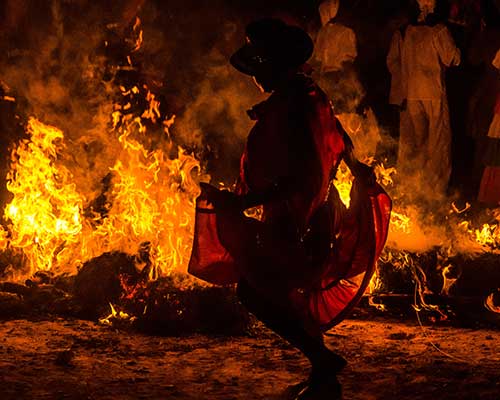
Cuba Fire Festival
Organized by Casa del Caribe, the annual Cuba Fire Festival will take place in Santiago de Cuba from July 2, 2026 to July 9, 2026. With musical venues at 50 locations and city streets lined with bars and stalls, rum-fuelled revellers get in the festival spirit as live bands, musicians and DJs keep crowds at fever pitch well into the nighttime hours.
Book NowCuba Fire Festival
Organized by Casa del Caribe, the annual Cuba Fire Festival will take place in Santiago de Cuba from July 2, 2026 to July 9, 2026. With musical venues at 50 locations and city streets lined with bars and stalls, rum-fuelled revellers get in the festival spirit as live bands, musicians and DJs keep crowds at fever pitch well into the nighttime hours.
Book Now
Havana Film Festival
The Havana Film Festival promotes the cinematographic works of Spanish- language filmmakers from Latin America, Spain and Cuba. It is sponsored by the Cuban Institute of the Cinematographic Art and Industry, ICAIC. The 47th edition of the Festival International del Nuevo Cine Latinoamericano will take place from December 3, 2026 to December 13, 2026.
Book NowHavana Film Festival
The Havana Film Festival promotes the cinematographic works of Spanish- language filmmakers from Latin America, Spain and Cuba. It is sponsored by the Cuban Institute of the Cinematographic Art and Industry, ICAIC. The 47th edition of the Festival International del Nuevo Cine Latinoamericano will take place from December 3, 2026 to December 13, 2026.
Book Now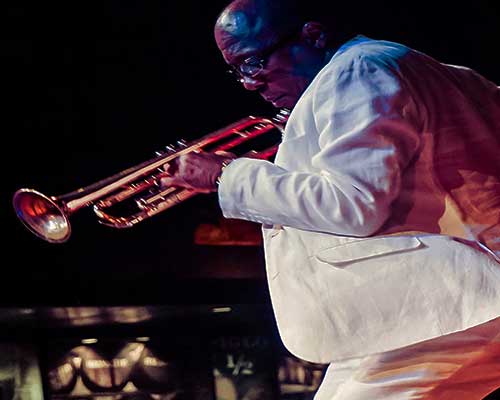
Havana Jazz Festival
The 42nd International Jazz Festival of Havana, which is sponsored by famed Cuban jazz artist Chucho Valdes and ICM, or the Cuban Institute of Music, will be held in numerous locations throughout La Habana from January 24, 2027 to January 31, 2027. More than 100 international bands have joined Cuba’s top Jazz musicians in previous festivals.
Book NowHavana Jazz Festival
The 42nd International Jazz Festival of Havana, which is sponsored by famed Cuban jazz artist Chucho Valdes and ICM, or the Cuban Institute of Music, will be held in numerous locations throughout La Habana from January 24, 2027 to January 31, 2027. More than 100 international bands have joined Cuba’s top Jazz musicians in previous festivals.
Book Now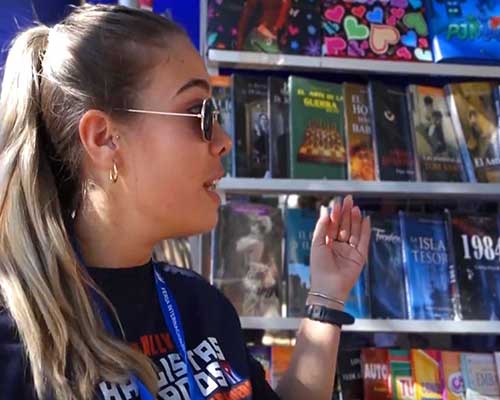
Havana Book Fair
The 35th International Book Fair of Havana will take place in Havana City from February 11 to February 21, 2027. Along with the public, the book fair is attended by Cuban and international authors, publishers, and political officials. Organized by the Cuban Book Institute, the fair transforms the Spanish fortification La Cabana into one of the biggest book parties in the world.
Book NowHavana Book Fair
The 35th International Book Fair of Havana will take place in Havana City from February 11 to February 21, 2027. Along with the public, the book fair is attended by Cuban and international authors, publishers, and political officials. Organized by the Cuban Book Institute, the fair transforms the Spanish fortification La Cabana into one of the biggest book parties in the world.
Book Now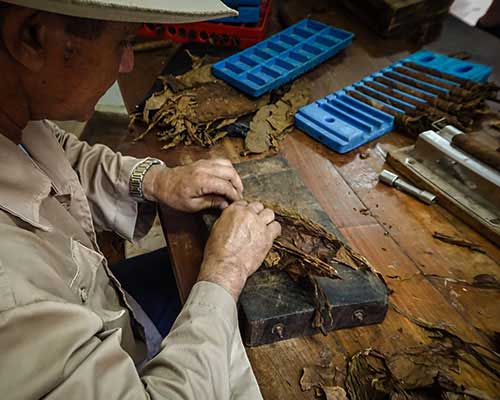
Habano Cigar Festival
Considered by many to be the world’s biggest premium cigar celebration, the XXVII Cigar Festival of Cuba will take place from February 22 to February 26, 2027. The Habano Cigar Festival's Exhibit Fair at Palacio de Las Convenciones regularly attracts some 1500 producers, distributors and businessmen, as well as large numbers of Cigar aficionados and tourists.
Book NowHabano Cigar Festival
Considered by many to be the world’s biggest premium cigar celebration, the XXVII Cigar Festival of Cuba will take place from February 22 to February 26, 2027. The Habano Cigar Festival's Exhibit Fair at Palacio de Las Convenciones regularly attracts some 1500 producers, distributors and businessmen, as well as large numbers of Cigar aficionados and tourists.
Book Now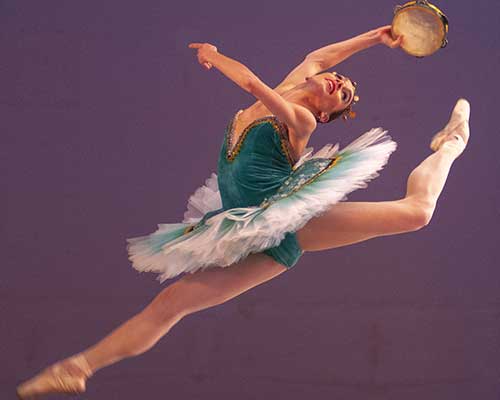
Havana Ballet Festival
The 29th Anniversary of the International Ballet Festival of Havana Alicia Alonso will take place from October 28 to November 6, 2026. Dancers, ballet companies, and choreographers from across the world look forward to the event, which is hosted by Cuba’s National Ballet at the Great Theatre of Havana, the Karl Marx Theatre and the Mella Theatre.
Book NowHavana Ballet Festival
The 29th Anniversary of the International Ballet Festival of Havana Alicia Alonso will take place from October 28 to November 6, 2026. Dancers, ballet companies, and choreographers from across the world look forward to the event, which is hosted by Cuba’s National Ballet at the Great Theatre of Havana, the Karl Marx Theatre and the Mella Theatre.
Book Now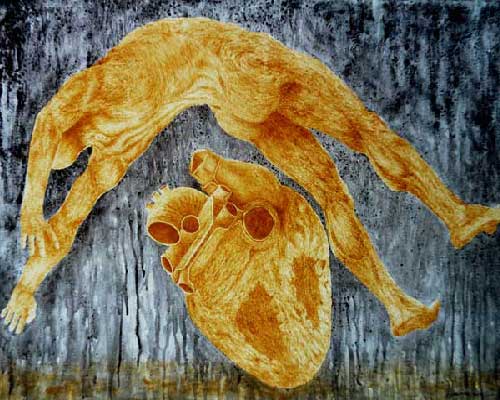
Havana Art Biennial
The 16th Havana Art Biennial will take place from November 15, 2027 to February 28, 2028. The rooster of international and national visual artists will include more than 200 creators from about 20 countries. According to the Wifredo Lam Art Center (organizing institution), the festival will turn the city into an interactive cultural corridor between the creators and public.
Book NowHavana Art Biennial
The 16th Havana Art Biennial will take place from November 15, 2027 to February 28, 2028. The rooster of international and national visual artists will include more than 200 creators from about 20 countries. According to the Wifredo Lam Art Center (organizing institution), the festival will turn the city into an interactive cultural corridor between the creators and public.
Book Now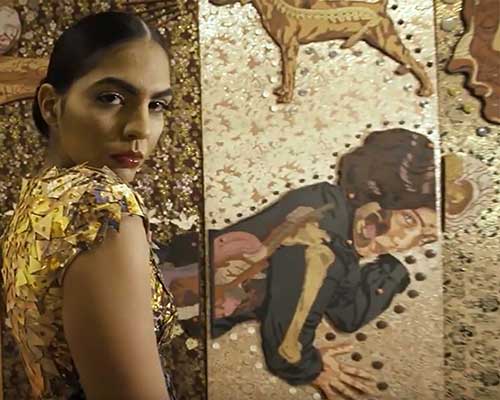
Art & Fashion Festival
The 22nd Edition of the Arte y Moda Festival will take place in the Cuban capital from November 6 to 8, 2026. The event showcases the creativity and innovation of Cuban designers, particularly their emphasis on sustainability through the use of natural and recycled materials. They utilize innovative textiles, focusing on experimental and forward looking fashion.
Book NowArt & Fashion Festival
The 22nd Edition of the Arte y Moda Festival will take place in the Cuban capital from November 6 to 8, 2026. The event showcases the creativity and innovation of Cuban designers, particularly their emphasis on sustainability through the use of natural and recycled materials. They utilize innovative textiles, focusing on experimental and forward looking fashion.
Book Now







CUBA TOUR FINDER
Select your authentic Cuba trip from over 70 Cuba tours in seconds. Sort by departure date, price, destination and even Cuba travel theme.
QUICK CUBA TOUR FINDERCuba Themed Tours
If you’ve got an idea of which style of trip will suit you best, take a look at our different trip themes below, as there’s something to suit everyone. Not only are there themed tours to fit any budget and interest, each Authentic Cuba Travel® experience immerses you in the authentic Cuba so hard to explore while just staying in full packed beach resorts.
Festival Tours
Our festival tours give travelers VIP access to all venues and happenings of Cuba’s famous international events such as the Havana Jazz Festival, Book Fair, Ballet Festival and others.
Study Tours
Through peer to peer interaction, our Cuba Study Tours® transcend ordinary tourism by immersing American students in the local culture, history, politics, music and contemporary arts.
Cultural Tours
Cuba Pathfinder® is your gateway to discover the unique Cuban cultural heritage, a set of traditions & memories not showcased in museums but much alive & thriving.
Architecture Tours
An architectural passage through Cuba’s best preserved colonial cities and unique architectural heritage, our architecture tours visit all UNESCO World Heritage Sites in Cuba.
Photography Tours
Capturing stirring pictures of authentic Cuban destinations it is not the only mission of our photography tours. Capture the essence of the Cuban culture and the kindness of its people.
Educational Tours
Our educational tours represents a great opportunity for K-12 teachers, university & college professors to explore Cuba’s education system while exploring colonial cities, towns and villages.
Nature Tours
An odyssey into Cuba's tropical paradise, our nature & bird watching tours gain access to the most pristine natural sites, from UNESCO Biosphere Reserves to National Parks.
Jewish Tours
A journey into the Jewish history in Cuba, our tours will strengthen the ties between Cuban Jewish communities and North American Jews. All while visiting 4 UNESCO World Heritage Sites!
Sports Tours
What sets our sports tours apart are the private exchanges with players, coaches & staff as well as sports journalists & personalities. Then you have best seats at the games!
List of Cuba Tours 2026
-
Tour Name
Tour Dates
Cost
-
Cuba Al Natural
Havana, Zapata, Trinidad
Mar 7- Mar 18, 2026
$2,859 Book Now
-
Cuba Business Tour 1
Havana, Matanzas, Varadero
Mar 7- Mar 14, 2026
$2,599 Book Now
-
Healthcare Cuba Tour 1
Havana, Cienfuegos, Trinidad
Mar 7- Mar 14, 2026
$2,599 Book Now
-
Real Cuba Tour 3
Havana, Las Terrazas, Vinales
Mar 7- Mar 14, 2026
$2,599 Book Now
-
Cuba Engage Tour 3
Havana, Bay of Pigs, Trinidad
Mar 7- Mar 14, 2026
$2,599 Book Now
-
Cuba Art Explorer I
Havana, Vinales
Mar 7- Mar 14, 2026
$2,599 Book Now
-
Bird Watching Tour
Havana, Zapata, Trinidad
Mar 7- Mar 14, 2026
$2,599 Book Now
-
Cuba Education Tour 3
Havana, Cienfuegos, Trinidad
Mar 7- Mar 14, 2026
$2,599 Book Now
-
Cuba Education Tour 4
Havana, Vinales
Mar 14- Mar 21, 2026
$2,599 Book Now
-
Photography Tour I
Havana, Vinales, Trinidad
Apr 4- Apr 11, 2026
$2,629 Book Now
-
The Nature of Cuba
Havana, Vinales, Trinidad
Apr 4- Apr 13, 2026
$2,799 Book Now
-
Real Cuba Tour 4
Havana, Las Terrazas, Vinales
Apr 4- Apr 11, 2026
$2,599 Book Now
-
Cuba Engage Tour 4
Havana, Bay of Pigs, Trinidad
Apr 4- Apr 11, 2026
$2,599 Book Now
-
4 Biosphere Reserves
Rosario, Zapata, Buenavista
May 1- May 10, 2026
$2,999 Book Now
-
Real Cuba Tour 5
Havana, Las Terrazas, Vinales
May 9- May 16, 2026
$2,599 Book Now
-
Cuba Engage Tour 5
Havana, Bay of Pigs, Trinidad
May 9- May 16, 2026
$2,599 Book Now
-
Photography Tour II
Havana, Vinales, Trinidad
Jun 6- Jun 13, 2026
$2,629 Book Now
-
Cuba Art Explorer II
Havana, Cienfuegos, Trinidad
Jun 6- Jun 13, 2026
$2,599 Book Now
-
Cuba Education Tour 5
Havana, Cienfuegos, Trinidad
Jun 6- Jun 13, 2026
$2,599 Book Now
-
Real Cuba Tour 6
Havana, Las Terrazas, Vinales
Jun 6- Jun 13, 2026
$2,599 Book Now
-
Cuba Engage Tour 6
Havana, Bay of Pigs, Trinidad
Jun 6- Jun 13, 2026
$2,599 Book Now
-
Cuba Fire Festival
Havana, Santiago de Cuba
Jul 2- Jul 9, 2026
$2,799 Book Now
-
Real Cuba Tour 7
Havana, Las Terrazas, Vinales
Jul 4- Jul 11, 2026
$2,599 Book Now
-
Cuba Engage Tour 7
Havana, Bay of Pigs, Trinidad
Jul 4- Jul 11, 2026
$2,599 Book Now
-
Cuba Business Tour 2
Havana, Matanzas, Varadero
Jul 4- Jul 11, 2026
$2,599 Book Now
-
Healthcare Cuba Tour 2
Havana, Cienfuegos, Trinidad
Jul 4- Jul 11, 2026
$2,599 Book Now
-
Cuba Education Tour 6
Havana, Santiago de Cuba
Jul 4- Jul 11, 2026
$2,799 Book Now
-
Cuba Education Tour 7
Havana, Las Terrazas & Vinales
Jul 11- Jul 18, 2026
$2,599 Book Now
-
Jews of Cuba Travel
Havana, Santa Clara, Cienfuegos
Aug 6- Aug 13, 2026
$2,799 Book Now
-
Real Cuba Tour 8
Havana, Las Terrazas, Vinales
Aug 8- Aug 15, 2026
$2,599 Book Now
-
Cuba Engage Tour 8
Havana, Bay of Pigs, Trinidad
Aug 8- Aug 15, 2026
$2,599 Book Now
-
Photography Tour III
Havana, Vinales, Trinidad
Aug 8- Aug 15, 2026
$2,629 Book Now
-
Cuba Education Tour 8
Havana, Cienfuegos, Trinidad
Aug 8- Aug 15, 2026
$2,599 Book Now
-
Cuba Art Explorer III
Havana, Vinales
Aug 8- Aug 15, 2026
$2,599 Book Now
-
Cuba Legal Travel
Havana, Vinales
Aug 8- Aug 15, 2026
$2,799 Book Now
-
Cuba Architecture I
Havana, Cienfuegos, Trinidad
Aug 8- Aug 15, 2026
$2,599 Book Now
-
Seven Cities II
Havana, Santiago de Cuba
Aug 8- Aug 19, 2026
$3,329 Book Now
-
Real Cuba Tour 9
Havana, Las Terrazas, Vinales
Sep 5- Sep 12, 2026
$2,599 Book Now
-
Cuba Engage Tour 9
Havana, Bay of Pigs, Trinidad
Sep 5- Sep 12, 2026
$2,599 Book Now
-
Baseball Tour
Havana, Cienfuegos, Trinidad
Sep 5- Sep 12, 2026
$2,999 Book Now
-
African Heritage
Havana, Las Terrazas, Vinales
Oct 3- Oct 9, 2026
$2,699 Book Now
-
Real Cuba Tour 10
Havana, Las Terrazas, Vinales
Oct 3- Oct 10, 2026
$2,599 Book Now
-
Cuba Engage Tour 10
Havana, Bay of Pigs, Trinidad
Oct 3- Oct 10, 2026
$2,599 Book Now
-
Dance Cuba Tour
Havana, Las Terrazas
Oct 3- Oct 10, 2026
$2,599 Book Now
-
Performing Arts Tour
Havana, Cienfuegos, Trinidad
Oct 3- Oct 10, 2026
$2,599 Book Now
-
Cuba Ballet Festival
Havana, Vinales
Oct 31- Nov 7, 2026
$2,999 Book Now
-
Jo Jazz Havana
Havana, Las Terrazas, Vinales
Nov 4- Nov 11, 2026
$2,799 Book Now
-
Seven Cities I
Havana, Santiago de Cuba
Nov 5- Nov 16, 2026
$3,329 Book Now
-
Cuba Nature Tour
Havana, Vinales, Trinidad
Nov 6- Nov 15, 2026
$2,799 Book Now
-
Art & Fashion Festival
Havana, Cienfuegos, Trinidad
Nov 6- Nov 13, 2026
$2,699 Book Now
-
Real Cuba Tour 11
Havana, Las Terrazas, Vinales
Nov 7- Nov 14, 2026
$2,599 Book Now
-
Cuba Engage Tour 11
Havana, Bay of Pigs, Trinidad
Nov 7- Nov 14, 2026
$2,599 Book Now
-
Cuba Business Tour 3
Havana, Matanzas, Varadero
Nov 7- Nov 14, 2026
$2,599 Book Now
-
Healthcare Cuba Tour 3
Havana, Cienfuegos, Trinidad
Nov 7- Nov 14, 2026
$2,599 Book Now
-
Havana Film Festival
Havana, Vinales
Dec 7- Dec 14, 2026
$2,899 Book Now
-
Real Cuba Tour 12
Havana, Las Terrazas, Vinales
Dec 26- Jan 2, 2027
$2,799 Book Now
-
Cuba Engage Tour 12
Havana, Bay of Pigs, Trinidad
Dec 26- Jan 2, 2027
$2,799 Book Now
-
Cuba Education Tour 9
Havana, Cienfuegos, Trinidad
Dec 26- Jan 2, 2027
$2,599 Book Now
-
Cuba Education Tour 10
Havana, Bay of Pigs, Santa Clara
Dec 26- Jan 2, 2027
$2,599 Book Now
-
Cuba Education Tour 11
Havana, Santiago de Cuba
Dec 26- Jan 2, 2027
$2,799 Book Now
-
Bird Watching Tour
Havana, Zapata, Trinidad
Dec 26- Jan 2, 2027
$2,599 Book Now
-
Cuba Architecture II
Havana, Cienfuegos, Trinidad
Dec 26- Jan 2, 2027
$2,799 Book Now
-
Cuba Art Explorer IV
Havana, Las Terrazas
Dec 26- Jan 2, 2027
$2,799 Book Now
-
Photography Tour IV
Havana, Vinales, Trinidad
Dec 26- Jan 2, 2027
$2,729 Book Now
-
Jewish Heritage Tour
Havana, Cienfuegos, Trinidad
Dec 26- Jan 2, 2027
$2,899 Book Now
-
Family Discovery Tour
Havana, Cienfuegos, Trinidad
Dec 26- Jan 2, 2027
$2,699 Book Now
-
Real Cuba Tour 1
Havana, Las Terrazas, Vinales
Jan 9- Jan 16, 2027
$2,599 Book Now
-
Cuba Engage Tour 1
Havana, Bay of Pigs, Trinidad
Jan 9- Jan 16, 2027
$2,599 Book Now
-
Havana Art Biennial
Havana, Vinales
Dec 11- Dec 18, 2027
$2,799 Book Now
-
Cuba Jazz Festival
Havana, Cienfuegos, Trinidad
Jan 24- Feb 1, 2027
$3,099 Book Now
-
Santiago Jazz Festival
Santiago de Cuba
Jan 24- Jan 31, 2027
$2,899 Book Now
-
Havana Jazz Festival
Havana, Vinales
Jan 27- Feb 1, 2027
$2,499 Book Now
-
Havana Book Fair
Havana, Cienfuegos, Trinidad
Feb 12- Feb 19, 2027
$2,799 Book Now
-
Real Cuba Tour 2
Havana, Las Terrazas, Vinales
Feb 6- Feb 13, 2027
$2,599 Book Now
-
Cuba Engage Tour 2
Havana, Bay of Pigs, Trinidad
Feb 6- Feb 13, 2027
$2,599 Book Now
-
Habano Cigar Festival
Havana, Vinales
Feb 20- Feb 27, 2027
$8,999 Book Now
-
Cuba Education Tour 1
Havana, Cienfuegos, Trinidad
Feb 20- Feb 27, 2027
$2,599 Book Now
-
Cuba Education Tour 2
Havana, Cienfuegos, Trinidad
Feb 27- Mar 6, 2027
$2,599 Book Now
SUBSCRIBE
Be in the know and sign up for email updates from Authentic Cuba Travel®. Our monthly Newsletters are full of great information for North American schools and educational institutions, their students, faculty and staff, as well as all those travellers interested in Cuba's educational system. Last minute discounts on Cuba education tours, contests and featured educational travel opportunities. All to keep you up to date with the world of Authentic Cuba Travel®.
NewsletterMemberships & Affiliations
Bella Travel Group Ltd. (Federal Corporation number: 765324-7) owns and operates the following registered trademarks: Authentic Cuba Travel® is a trademark registered at the Canadian Intellectual Property Office (CIPO), Registration No. TMA975677 | Cuba Pathfinder® is a trademark registered at the Canadian Intellectual Property Office (CIPO), Registration No. TMA997988 | Cuba Pathfinder® is a trademark registered at the United States Patent and Trademark Office (USPTO), Registration No. 5498353 | Cuba Study Tours, Make Cuba Your Classroom® is a trademark registered at the United States Patent and Trademark Office (USPTO), Registration No. 5833051.

 1-877-280-2054 (North America)
1-877-280-2054 (North America) 647-351-8191
(Worldwide)
647-351-8191
(Worldwide)
 647-351-8191
(Worldwide)
647-351-8191
(Worldwide)



